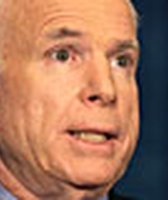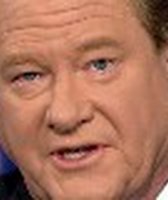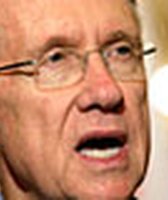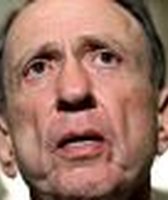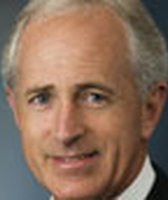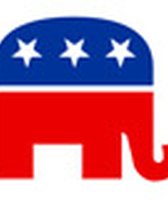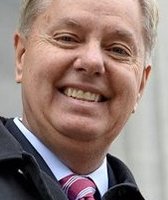Stand up for the facts!
Our only agenda is to publish the truth so you can be an informed participant in democracy.
We need your help.
I would like to contribute
McCain flips on 'Don't Ask, Don't Tell'
The military's controversial "Don't Ask, Don't Tell" policy is back in the spotlight after President Barack Obama pledged to repeal it in his State of the Union speech.
On the campaign trail, Obama frequently attacked the policy, which prohibits gays and lesbians from openly serving in the military.
His opponent Sen. John McCain signaled he was open to changing the policy, but made it conditional to what military leaders wanted. Here's what he had to say about the issue back in 2006:
"I listen to people like Gen. Colin Powell, former chairman of the Joint Chiefs of Staff, and literally every military leader that I know. And they testified before Congress that they felt the 'Don't Ask, Don't Tell' policy was the most appropriate way to conduct ourselves in the military. A policy that has been effective. It has worked. ... But the day that the leadership of the military comes to me and says, 'Senator, we ought to change the policy,' then I think we ought to consider seriously changing it because those leaders in the military are the ones we give the responsibility to."
McCain made those comments while speaking to a group of students at Iowa State University during a special taping of Hardball with Chris Matthews in October 2006, when he was considered a likely presidential candidate. McCain didn't formally announce his campaign until the spring of 2007.
McCain offered variations of that position during the campaign, at times sounding more firm in his support of the "Don't Ask, Don't Tell" policy.
"We have the best-trained, most professional, best-equipped, most efficient, most wonderful military in the history of this country," McCain said during a debate on June 5, 2007. "There just aren't enough of them. So I have to rely on our military leadership, in whom we place the responsibility to lead these brave young Americans in combat as we speak. ... I think it would be a terrific mistake to even reopen the issue. It is working, my friends. The policy is working. ... Let's not tamper with them."
In May 2009, McCain said in an interview on This Week that he'd be glad "to have a thorough review of the policy by the Joint Chiefs of Staff and their recommendations," but added that, "right now the military is functioning extremely well in very difficult conditions. We have to have an assessment on recruitment, on retention and all the other aspects of the impact on our military if we change the policy. In my view, and I know that a lot of people don't agree with that, the policy has been working and I think it's been working well."
McCain used similar rhetoric several times throughout 2009, emphasizing his belief that "Don't Ask, Don't Tell" was working and should not be changed.
After Obama pledged to repeal the policy in his State of the Union speech, Joint Chiefs of Staff chairman Michael Mullen and Defense Secretary Robert Gates told the Senate Armed Services Committee, which McCain co-chairs, how they planned to fulfill Obama's promise. During the testimony, Mullen said, speaking "for myself and myself only," that he is in favor of "allowing gays and lesbians to serve openly" in the armed forces.
Featured Fact-check
"No matter how I look at the issue, I cannot escape being troubled by the fact that we have in place a policy which forces young men and women to lie about who they are in order to defend their fellow citizens," he said.
Secretary of Defense Robert Gates said, "I fully support the president's decision."
Gates told the committee that a working group would review ways to properly repeal the policy, though Congress must ultimately vote to change the law. The group is due to report on its findings a year from now.
McCain -- who had said back in 2006 that he would be guided by military leaders -- told Gates and Mullen that he was "disappointed" with the testimony. Overturning the law would "be a substantial and controversial change to a policy that has been successful for two decades," he said in his opening statement. "It would also present yet another challenge to our military at a time of already tremendous stress and strain... At this moment of immense hardship for our armed services, we should not be seeking to overturn the 'Don’t Ask, Don’t Tell' policy."
Nevertheless, McCain said he would welcome a report on the subject so long as it steered clear of politics and focused only on military readiness and effectiveness.
We asked McCain's spokeswoman Brooke Buchanan whether her boss had experienced a change of heart on the policy, and she told us he had not.
"Obviously, Sen. McCain does not believe we should repeal 'Don't Ask, Don't Tell,'" she said. Mullen had spoken for himself when he said the policy should be repealed, not for the entire military, she said. If, after the one-year review, the Joint Chiefs agree, "then Sen. McCain would obviously consider a military leader's decision."
Three years ago, McCain said that he would "consider seriously changing ['Don't Ask, Don't Tell']" should the administration's top brass say it was a good idea. On Feb. 2, 2010, those officials showed up in McCain's committee room and said just that. Yet McCain's statements -- reiterated by Buchanan -- make it clear he hasn't budged. So we rate this a Full Flop.
Our Sources
MSNBC, transcript of Hardball with Chris Matthews, Oct. 19, 2006
The Washington Post, McCain Appears to Shift on 'Don't Ask, Don't Tell,' by Michael D. Shear, Feb. 3, 2010
The Atlantic Wire, What Happened to John McCain?, by Max Fisher, Feb. 03, 2010
This Week, transcript from May 10, 2009
The New York Times, For ‘Don’t Ask, Don’t Tell,’ Split on Party Lines, by Robin Toner, June 8, 2009
CNN, transcript of June 5, 2007 debate
The Web site of Sen. John McCain, opening statement during the Don't Ask, Don't Tell hearing, Feb. 2, 2010
Browse the Truth-O-Meter
More by Catharine Richert
McCain flips on 'Don't Ask, Don't Tell'
Support independent fact-checking.
Become a member!
In a world of wild talk and fake news, help us stand up for the facts.

